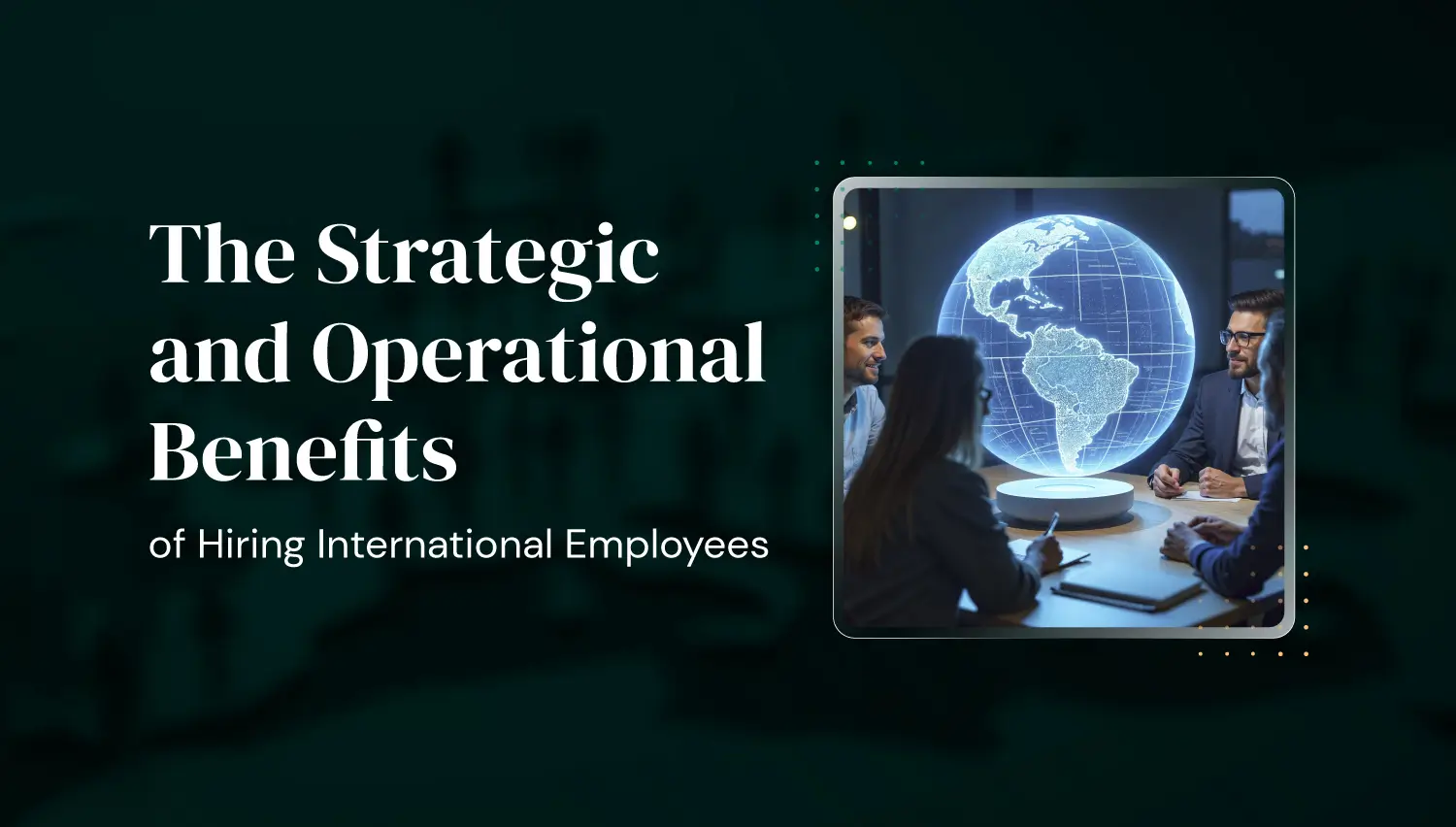A while back, I worked with a mid-sized corporate law firm that couldn’t keep up with its workload. The partners were sharp, but buried in details, drafting, filings, and compliance checks. Deadlines slipped, quality wavered, and one major client started to lose confidence.
When I reviewed their structure, the issue was clear: no senior paralegal. Associates were covering the work, but without the systems, precision, or regulatory fluency that a dedicated paralegal brings. So, we placed a seasoned professional with deep commercial experience — someone who knew how to run the legal engine.
Within weeks, accuracy improved, turnaround times stabilized, and client relationships recovered. More than just operational relief, this turned out to be a reputational repair.
That’s the leverage a great paralegal creates. They safeguard accuracy, compliance, and trust, not just fill out paperwork. In the sections ahead, I’ll break down how exceptional paralegals anchor a firm’s credibility and why hiring the right one can redefine a legal team’s performance.
What a Great Paralegal Actually Does (and Why It Matters)
In my experience placing legal professionals, the difference between an average paralegal and a great one is operational control. The best paralegals create structure around complexity, turning legal chaos into precision. Here’s how that looks in practice.
Draft Legal Documents and Correspondence
A skilled paralegal can turn attorney direction into clean, compliant drafts that minimize revision cycles. They understand the weight of every clause, anticipate client sensitivities, and maintain tone and accuracy across filings, letters, and agreements. Good drafting is risk management in action.
Organize and Maintain Case Files
When firms struggle with version control or misplaced documentation, the root cause is often a lack of paralegal ownership. Great paralegals establish document systems that prevent lost time, missed evidence, and compliance slip-ups. Keeping every motion, exhibit, and communication traceable.
Conduct Legal Research to Support Attorneys
The strongest paralegals don’t just gather information. They synthesize it. They know where to find credible precedents and how to distill insights that save attorneys hours of billable time. Their research precision directly impacts argument strength and client confidence.
Track Filing Deadlines and Ensure Timely Submissions
This is where good paralegals quietly save firms from costly errors. They build internal calendars, monitor jurisdiction-specific requirements, and preempt deadline risks before they become emergencies. Behind every smooth filing process, there’s usually a paralegal who refuses to let anything slip through the cracks.
Coordinate Client Communications for Case Updates
Clients judge a firm not just on legal outcomes, but on clarity and responsiveness. Paralegals bridge that gap, keeping communication flowing, setting expectations, and ensuring clients feel informed and supported at every stage.
.webp)
Prepare Evidence Summaries for Review
Accuracy here is everything. Strong paralegals can condense thousands of pages of discovery into concise, usable summaries that attorneys can rely on in court or negotiation prep. Their ability to organize facts directly affects case readiness and attorney efficiency.
Support Attorneys During Hearings and Meetings
In the room, great paralegals anticipate needs before they’re spoken. They manage exhibits, notes, and procedural materials so attorneys can stay focused on strategy. That composure under pressure often determines whether a meeting or hearing runs smoothly.
Manage Billing and Invoicing for Cases
It’s rarely glamorous, but it’s critical. Paralegals who handle billing bring order to one of the most operationally sensitive parts of a practice. They ensure accuracy, flag discrepancies, and protect revenue integrity, a core part of sustaining client trust.
Ensure Compliance with Legal Protocols and Confidentiality
From GDPR to firm-level confidentiality agreements, compliance is nonnegotiable. Exceptional paralegals uphold these standards daily, ensuring information security and adherence to professional conduct codes that keep firms protected.
Maintain Accurate Legal Records for Future Reference
A strong record system is both an operational asset and a legal safeguard. Paralegals who manage these archives ensure that future audits, appeals, or cross-case references are handled with speed and precision, preserving institutional memory that strengthens the firm over time.
How Great Paralegals Anchor Accuracy, Compliance, and Client Trust
In most firms, accuracy and compliance are the line between profitability and liability. The paralegal sits right on that line. Their work stabilizes the entire legal operation.
Accuracy Protects the Firm’s Credibility
Legal work moves fast, but precision remains nonnegotiable. A great paralegal acts as the final circuit breaker before risk reaches a client. They check facts, reconcile filings, and ensure consistency across every document that leaves the firm.
When I review placements months after hiring, one of the clearest performance indicators is this: firms with strong paralegal oversight report fewer post-filing corrections, fewer client escalations, and tighter workflows between partners and support staff. Accuracy compounds: it builds internal trust first, then external trust naturally follows.
Compliance Prevents Costly Disruption
The legal environment never sits still. New regulations, procedural changes, and filing standards shift constantly. Paralegals are often the first to notice. They monitor updates, flag operational implications, and adapt firm processes before attorneys are even briefed.
In one placement with a financial services firm, a senior paralegal caught an early change in state-level disclosure rules that could have invalidated hundreds of client agreements. Her intervention prevented a reputational crisis. That kind of foresight can’t be automated or delegated. It comes from lived experience and structured attention to detail.
Client Trust Is Built Through Consistency
Clients may hire firms for legal acumen, but they stay because of reliability. Paralegals are the quiet proof of that reliability. The people who answer calls, track updates, and make sure the next step always happens when it’s supposed to.
When firms invest in experienced paralegal talent, they signal consistency. Every accurate draft, every on-time submission, every well-managed communication builds the confidence that keeps clients returning and referring.
The Business Case for Hiring Well
For all the emphasis on partner expertise, client satisfaction is rarely shaped by the people signing the letters. It’s shaped by the team running the process behind them. Great paralegals drive measurable efficiency, lower the cost of error, and keep compliance risk out of escalation. That’s not administrative value; that’s operational ROI.
When firms hire strategically for this role (prioritizing precision, process discipline, and judgment), they’re strengthening the systems that protect revenue and reputation simultaneously.
How to Hire and Retain Top Paralegal Talent
Hiring a great paralegal isn’t about finding someone who can “do the paperwork.” It’s about finding someone who brings structure, precision, and foresight to a complex workflow. Yet too many firms still approach this hire as a secondary priority, treating it as an administrative add-on instead of a cornerstone of their operation. That’s where strong recruitment discipline changes everything.
Define the Real Scope Before You Post
The most common hiring mistake I see is under-scoping the role. Firms often write job descriptions that sound like junior administrative support when what they truly need is operational leadership. Before posting, define what this person will own, not just what they’ll assist with.
Ask:
- Will they manage case calendars or oversee them?
- Will they simply prepare filings or maintain procedural compliance?
- Do they interface directly with clients or only internally?
When the scope is clear, the talent pool changes dramatically. You attract professionals who think like operators, not assistants.
.webp)
Evaluate for Judgment, Not Just Experience
Years of service matter less than the ability to make sound calls under pressure. In interviews, I look for examples of independent problem-solving: how candidates caught an error no one else saw, handled a filing deadline conflict, or streamlined a recurring task. These are indicators of judgment. The quality that separates a solid paralegal from a transformative one.
Structured assessments help, too. Case-based questions or short scenario reviews often reveal far more than a resume can.
Prioritize Communication and Composure
In practice, paralegals are often the first line of contact for clients and the final quality checkpoint before submissions. That combination demands calm under pressure. I’ve seen excellent candidates fall short simply because their communication style couldn’t hold up to the pace or sensitivity of client-facing work. Always test for it.
Ask how they’d handle a last-minute document correction minutes before filing, or how they’d explain a delay to a client. You’ll quickly see who’s capable of maintaining clarity and professionalism when it counts.
Build Retention Into the Role
Once you’ve found a great paralegal, keeping them is equally strategic. The best ones crave autonomy, not micromanagement. They want to know that their accuracy and foresight are recognized as business-critical, not invisible.
Retention in this field is driven by respect for expertise. Simple adjustments like involving paralegals in process reviews, investing in continuing education, and maintaining a realistic workload go further than most firms realize.
Partner With Specialists Who Understand the Nuance
Generic hiring channels rarely surface elite paralegals. The talent pool is small, demand is high, and cultural fit matters. That’s where a specialized recruiter adds real value. Someone who understands the workflow inside a firm can read between the lines of a resume and knows how to surface candidates who’ve already proven their precision in high-stakes environments.
At this level, you’re fortifying your firm’s foundation, not just hiring a support role. Hiring strategically means knowing where to look, how to evaluate, and how to structure the environment so top talent can actually stay.
Building Legal Teams That Clients Trust
Accuracy, compliance, and trust are built through people, not policies. A great paralegal embodies all three. They make every case, every filing, and every client interaction more reliable. And in a profession where risk hides in the details, that reliability is what protects the firm’s reputation long after the case closes.
Hiring that caliber of talent takes more than a job posting. It takes knowing how to read for precision, how to test for judgment, and how to match operational tempo with temperament. That’s where a specialized recruitment partner changes the equation.
At Somewhere, we help firms identify, attract, and retain the kind of paralegals who keep operations airtight and clients confident. Whether you’re expanding your team or replacing a critical role, our approach focuses on accuracy and alignment. So, you don’t just fill a seat — you strengthen your entire legal function.
If you’re ready to build a team that clients can trust as much as they trust your counsel, fill out the form below to start the conversation.













.jpeg)
.webp)